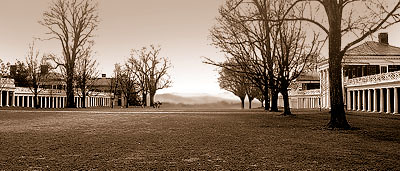
Volume VI, Issue XV
A 'Best of THYMEs' Feature...
Rethinking College (and Education)
The 'other' weekly news magazine's U. S. Edition presents The Class of 2025 [click to read]. They ponder what they will have learned... and how they will pay for it! Clearly changes are needed. The average US student graduates with $26,000 in college debt, with total college debt around one trillion dollars. Unfortunately the job market often presents a hostile reality, the field they have prepared five years to enter isn't hiring. TIME's Amanda Ripley looks at new trends, such as online learning and how the way we learn is already changing in a Previous Article [click to read].
The rise in online learning and for-profit colleges is challenging the traditional academy. Ostensibly this is the underlying tension behind recent events at Charlottesville's University of Virginia, where popular President Teresa Sullivan was forced to resign and then quickly reinstated.
College costs are rising at a rate outpacing the economy at large. At the same time many are questioning its value, even as it is being touted as "being as essential now as high school was in the 'Fifties." Many young men are foregoing college and entering fields such as technology, finding that to offer a more rapid path to a paycheck.
My Father became an engineer in an era where Engineering schools did not bother to teach Literature. He struggled in high school, and framed a letter from a high school adviser stating bluntly that he should pursue a field other than Engineering. Undeterred, Dad enrolled in Junior College, then transferred to Notre Dame. He worked for Wright Aviation before taking a job at the Martin Company's Middle River Plant in Baltimore. He framed the letter.
Dad worked on the seaplanes that were used in WWII, then as Middle River closed down, he started his own test lab. He opened it in one of those buildings with spaces for contractors that had a garage door and an office. His neighbors were plumbers and HVAC companies. He hired a lot of his old colleagues from Martin. Then he was hired by NASA's Goddard Space Flight Center, where he wrote the procedures for testing spacecraft.
Though his education did not include great literature, Dad was a Renaissance man who built his own great library. He read the classics for the pure joy of learning, and was as knowledgeable about literature as many who teach it. When I was young he would read to me from great volumes such as the works of Rudyard Kipling. What magical moments those bedtime stories would become! Little did Dad know he was innoculating me to survive industrialized education.
My point? Learning can be more pragmatic, learning should be lifelong. More people need to read thick wonderful books to their kids. Making young minds cram great literature for exams may leave a bad taste and leaves no room for rumination. Dad often let me work alongside him doing projects. He taught me how to work, how to design a greenhouse, and most importantly; Dad taught me how to teach others.
I was the right-brained child who struggled in school. Dad apprenticed me in the skills I needed to eventually overcome that. It is my sincere hope that Apprenticeship will experience a Renaissance as we seek to develop the G-d-given gifts of the generations to follow. Will we again find deep satisfaction in training our own replacements? It is my sincere hope that industry, the professions, and most importantly gifted individuals will step up to the challenge!

The Lawn of the University of Virginia originally opened to the surrounding community and countryside. Photos and rendering overlay by Bob Kirchman.





No comments:
Post a Comment